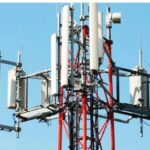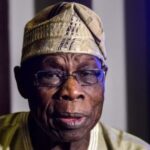In recent times, concerns have been mounting over the enforcement of Nigeria’s Cybercrimes (Prohibition, Prevention, etc.) Act of 2015, which many believe is being weaponized by government agencies and influential individuals to silence critics and perceived opponents.
Originally introduced to tackle cyber threats and bolster national security, the law contains controversial provisions—particularly Section 24(1)—that criminalize online communications deemed “grossly offensive,” “indecent,” or capable of causing “annoyance.” Critics argue that such vague wording has allowed the law to be misused against journalists and activists.
Although the Act underwent amendments in 2024, with the removal of the contentious section, its impact on press freedom and democratic expression remains a pressing issue. Media practitioners and civil rights groups argue that the law continues to serve as a tool to stifle dissent and limit the ability of journalists to hold public officials accountable.
The Growing Clampdown on Journalists
Reports of journalists facing intimidation, arrest, and prosecution under the Cybercrimes Act have been on the rise. One notable example is the case of Daniel Ojukwu, an investigative journalist with the Foundation for Investigative Journalism. Ojukwu was taken into custody by the police in Lagos on May 1, 2024, after he exposed an alleged misuse of funds by a top government official. He was accused under the Cybercrimes Act and detained for over a week before being granted bail.
Similarly, in March 2024, Segun Olatunji, a former editor of FirstNews, was forcefully taken from his home by security operatives and held in detention for weeks.
During the nationwide protests in August 2024, multiple journalists were reportedly harassed, arrested, and detained while covering demonstrations.
This growing pattern of repression has fostered a climate of fear among media professionals, leading to widespread self-censorship. Observers warn that such actions are weakening Nigeria’s democratic institutions and reversing hard-fought gains in press freedom.

Press Freedom Under Threat
The 2024 World Press Freedom Index by Reporters Without Borders ranked Nigeria 112th out of 180 countries, underscoring the increasing risks faced by journalists, who are often subject to surveillance, physical attacks, and arbitrary arrests.
A report by Media Rights Agenda (MRA) revealed that between January and October 2024, there were 69 documented attacks on journalists, with 45 of those incidents attributed to government security agencies.
Human rights advocates and civil society groups continue to demand a comprehensive review of the Cybercrimes Act to prevent its misuse. They acknowledge the importance of cybersecurity but argue that it should not come at the expense of fundamental freedoms guaranteed by the Nigerian Constitution.
In June 2024, the Nigerian Guild of Editors publicly condemned the misuse of the law by security agencies, stressing that its purpose is to combat cyber threats, not to suppress the media or intimidate critics.
Legal Challenges and Calls for Reform
The Socio-Economic Rights and Accountability Project (SERAP) has taken the fight to the regional level, filing a lawsuit at the ECOWAS Court of Justice against President Bola Tinubu and the governors of Nigeria’s 36 states. The suit challenges what SERAP describes as the “repressive” application of the Cybercrimes (Amendment) Act 2024 to target journalists, social media users, and activists for expressing dissenting opinions.
SERAP reminded the court of a 2022 ruling that directed Nigerian authorities to stop using Section 24 of the Cybercrimes Act to prosecute individuals accused of insulting or stalking public officials online.
Despite the amendments in 2024, SERAP insists that the law is still being deployed to intimidate citizens under broad and ambiguous terms such as “offensive” and “annoying” speech.
The Political and Social Fallout
Critics argue that the continued application of the law under President Bola Tinubu’s administration is especially troubling given his background as a civil rights advocate. Prominent Niger Delta activist Peter Ogaga expressed disappointment, recalling Tinubu’s involvement in the pro-democracy struggles of the 1990s that helped end military rule.
Ogaga questioned why a leader with such a history would permit legislation that stifles public discourse, warning that silencing dissent could turn democratic governance into an autocratic regime.
Meanwhile, legal and cybersecurity experts remain divided on the law’s impact. Moyosore Kukoyi, CEO of Forward Edge Consulting Ltd, believes there is no contradiction between the Cybercrimes Act and the Nigerian Constitution. He argues that while Section 39 of the Constitution guarantees freedom of expression, it does not define its limits, leaving room for laws such as the Cybercrimes Act to address cyberbullying, stalking, and defamation.
On the other hand, Abuja-based lawyer Chijioke Umelahi acknowledges the need for cybersecurity regulations but cautions against their abuse by the authorities. He argues that Nigeria’s judicial system lacks the trust of the people, with many fearing that laws such as the Cybercrimes Act could become another tool for political vendettas.
Charting the Way Forward
Experts and stakeholders have proposed several measures to prevent the continued misuse of the law, including:
- Judicial Oversight: Courts should take a more active role in scrutinizing cases to prevent the law’s abuse.
- Legislative Amendments: Clearer definitions and safeguards should be introduced to prevent vague interpretations that could infringe on free speech.
- Increased Awareness: Educating the public and journalists about their rights under the law to prevent unwarranted harassment.
- Accountability Measures: Security agencies and government officials found guilty of misusing the Act should face consequences.
While addressing the evolving challenges of cybersecurity remains crucial, it is equally important for the government to ensure that regulatory frameworks do not erode the democratic values of free expression and press freedom.
As Nigeria navigates the complexities of a digital era, the balance between security and civil liberties remains a critical issue that will shape the country’s democratic future.


